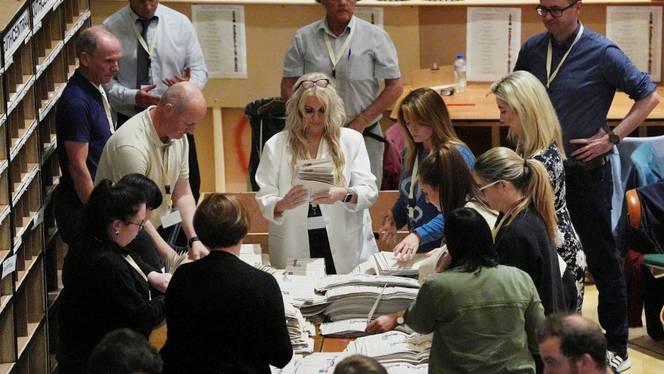European Voters Head to Polls on Final Day of EU Elections

European voters confront pivotal decisions amidst rising right-wing influence and pressing global crises, including the war in Ukraine and climate crisis.
Polling stations have opened across Europe as voters from 20 countries cast ballots in elections that are expected to shift the European Union’s parliament to the right and could reshape the future direction of the world’s biggest trading bloc.
War in Ukraine, the impact of climate policy on farmers and migration are some of the issues weighing on voters’ minds from Portugal in the west to the alpine nation of Austria to Poland in the east and Cyprus in the Mediterranean as they cast ballots to elect 720 members of the European Parliament on Sunday.
The voting marathon winds up a four-day election cycle that began in the Netherlands on Thursday. Official results of the polls, which are held every five years, cannot be published before the last polling stations in the 27 EU nations close – those in Italy at 11 pm (2100 GMT).
Unofficial estimates are due to trickle in from 1615 GMT, but results will only become clear on Monday.
An unofficial exit poll on Thursday suggested that Geert Wilders’ anti-migrant hard right party should make important gains in the Netherlands, even though a coalition of pro-European parties has probably pushed it into second place.
Should that trend continue, lawmakers will find it harder to pass legislation and make decisions.
Since the last EU election in 2019, populist or far-right parties now lead governments in three nations — Hungary, Slovakia and Italy — and are part of the ruling coalition in others, including Sweden, Finland and, soon, the Netherlands. Polls give the populists an advantage in France, Belgium, Austria and Italy.



